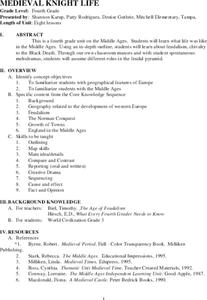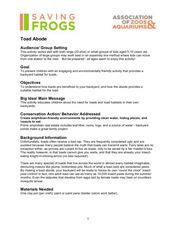Curated OER
Armor
In this armor worksheet, students answer short answer questions, multiple choice questions, draw, and more about armor they see at The Metropolitan Museum of Art. Students complete 4 activities.
Curated OER
Medieval Knight Life
Students research the Middle Ages. In this Middle Ages lesson, students complete lessons about feudalism, life on a manor, chivalry and knighthood, an activity about the Battle of Hastings, the growth of Middle Age towns, the trial by...
Curated OER
I Dream of Castles: A Comparative Study of Castles in Feudal Europe and Japan
Young scholars study castles of Japan while comparing and contrasting them with those of in Europe from the feudal era. They complete a unit of studies that includes reading, writing, Internet research, and critical thinking. They...
Curated OER
Review: Synonyms, Antonyms, Homonyms and Homographs
In this grammar worksheet, students read the 20 sentences and identify the pair of underlined words as synonyms, antonyms, homonyms or homographs.
Curated OER
Toad Adobe
Students explore the importance of toads and the need for toad habitats in the environment. In this animal habitats instructional activity, students create an adobe habitat for toads by using a clay pot. Students paint their pots and...
Curated OER
Idioms Quiz: Clothing 1
In this English idioms worksheet, students discover the meanings of various idioms based on clothes and clothing. Students complete sentences based on the meanings of the idioms.
Curated OER
Commonly Confused Words - Quiz 1
In this confused words worksheet, learners fill in the blanks to sentences by choosing the correct confusing word. Students complete 19 sentences.
Curated OER
Commonly Confused Words - Quiz 16
These words are very confusing for non-native English speakers because they sound very similar, but they have different meanings. Quiz your English language learners on their knowledge of various homophones with this 20-question quiz.









